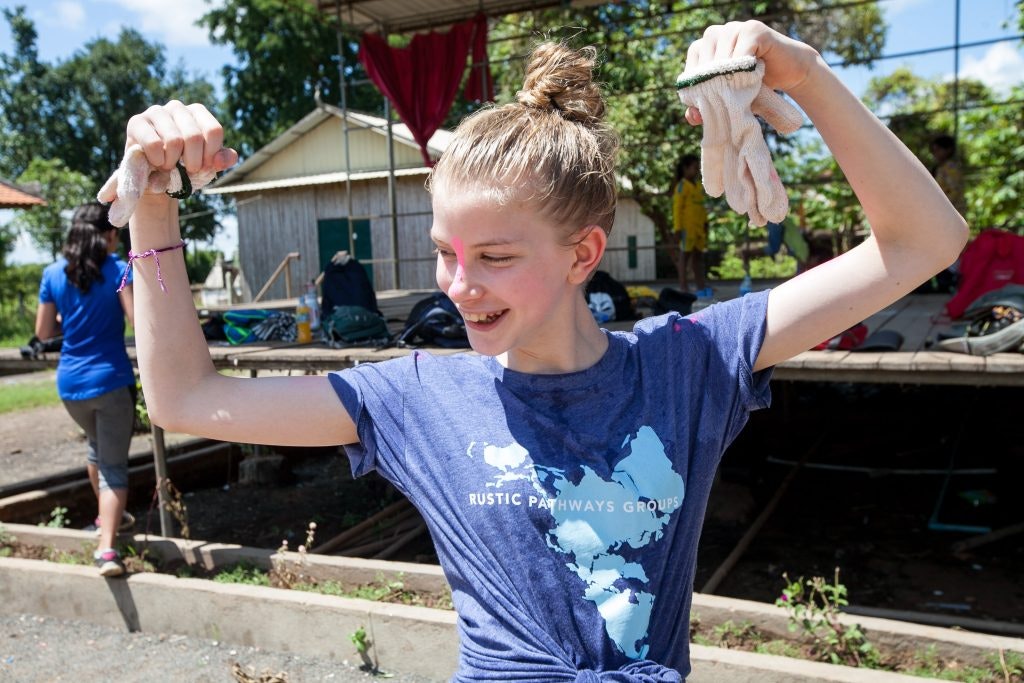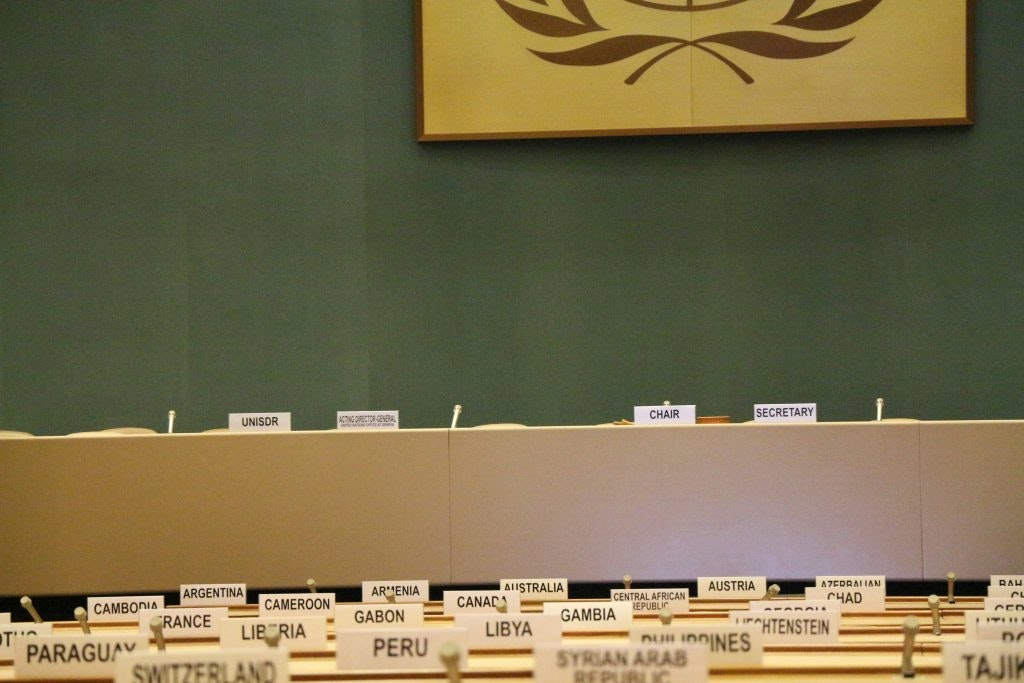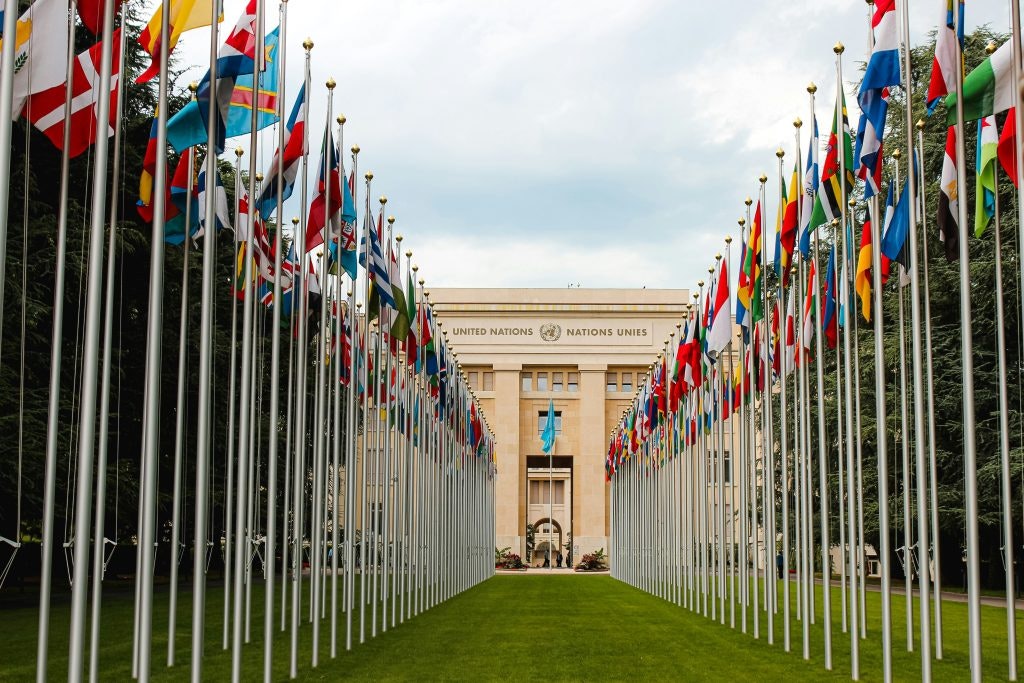







To become a United Nations Volunteer is a dream for many. It’s a great opportunity to contribute to global peace and development while gaining invaluable experience. In this guide, we’ll answer your most frequently asked questions on how to become a UN Volunteer, including:

A Rustic Pathways Student enjoys her time working on a community project.
Yes, the UN accepts volunteers. Here’s how you can get involved:
Related: The Best Types of Volunteer Programs
Individuals aged 18 and above are eligible to become UN volunteers. There is no typical profile for a UN Volunteer, as each assignment is unique and tailored to specific needs. However, you must meet these minimum requirements:
Age requirements:
| Volunteer Category | Age Range |
| International UN Volunteers | 18 and above |
| National UN Volunteers | 18 and above |
| UN Youth Volunteers & UN University Volunteers | 18-26 |
| UN Specialists | 27-80 |
| UN Expert Volunteers | 35-80 |
National requirements:
To qualify as a National UN Volunteers must be one of the following:
Educational background:
For higher-level volunteer assignments, a technical diploma, bachelor’s degree or master’s degree is generally required. Specific educational requirements will vary based on the role.
Professional experience:
| Volunteer Category | Years of Experience Required |
| UN Youth Volunteers & University Volunteers | 0-3 years |
| UN Volunteer Specialists | 3-15 years |
| UN Expert Volunteers | Over 15 years |
Language skills:
Proficiency in at least one of the UNV’s official languages-English, French, or Spanish-is required.
Personal qualities:
Successful UN Volunteers exhibit:
UN Volunteers contribute to various roles, including:
UN Youth Volunteers, aged 18 to 26, engage in initiatives that promote global peace and development. They work in various fields, such as human rights, climate change and peacebuilding, either in their own country or abroad. Assignments typically last between six and 24 months.
Volunteering with the UN provides:
Related content: 5 Benefits of Volunteering
UN Volunteers can serve in:

Becoming a UN Volunteer involves a multi-step recruitment process that can take from a few weeks to several months. Here’s how to get started:
To prepare for a UN Volunteer interview you should research the role, understand the UN’s mission and values and reflect on how your skills and experiences align with the needs of the assignment.
In the interview process, the interviewers pay close attention to the candidate’s track record, motivation and attitude towards volunteerism, as well as other personal qualities, such as team spirit and leadership, that are likely to make them successful in their assignments as UN Volunteers.
Learn more about how to prepare for a volunteer interview.
Yes, it is hard to become a UN Volunteer due to the high level of competition. However, candidates with relevant skills, experience and a strong dedication to the UN’s mission stand a good chance of being selected.

UN Volunteers get paid a monthly Volunteer Living Allowance (VLA) to cover basic expenses, including accommodation, transportation, and meals. International UN Volunteers receive a monthly VLA ranging from $1,500 to $2,200, while national UN Volunteers receive an allowance aligned with local salary scales. The Volunteer Life Allowance is not a salary, and volunteers are not considered formal employees of the United Nations.
UN Volunteers receive benefits such as health insurance, travel expenses, a living allowance, and support for relocation, if necessary.
You serve as a UN Volunteer for six to 12 months, with the option to renew your contract. However, the maximum length of service for United Nations volunteers is four years. Keep in mind that extending your contract depends on your performance, a request from the host agency, and confirmation from UNV that funds are available.
Yes, UN Volunteers are considered UN staff members and are in the UN Common System, but they are not considered staff members of the UN Secretariat (UNS) or formal employees of the United Nations.
In 2023, the average age of UN Volunteers was 35 years old, with the overall age range spanning from 18 to 78 years.
Related Content: Service Learning and the United Nations Sustainable Development Goals at Rustic Pathways
While there is no formal UN volunteers salary, they are provided with a monthly living allowance that varies based on location and assignment type. International volunteers generally receive higher allowances than national volunteers, especially when stationed at hardship duty stations.
UN Volunteers also receive a settling-in grant to cover initial expenses when relocating. This helps ensure volunteers can secure safe and adequate accommodation upon arrival. For those with eligible family members, a family allowance may be provided depending on the assignment.
The UN Volunteer program offers comprehensive support including a pre-departure allowance for international assignments and disability insurance throughout your service.
Employers in the international development and experiential education sectors, such as Rustic Pathways, often value the project management and cross-cultural experience gained through UN Volunteer assignments. Learn more about careers at Rustic Pathways.
Take time to familiarize yourself with how the UN Volunteer application process works and the qualifications required for each type of assignment. Preparing in advance will help you present your strongest application for these competitive roles.
Read More: Summer Volunteer Programs Abroad